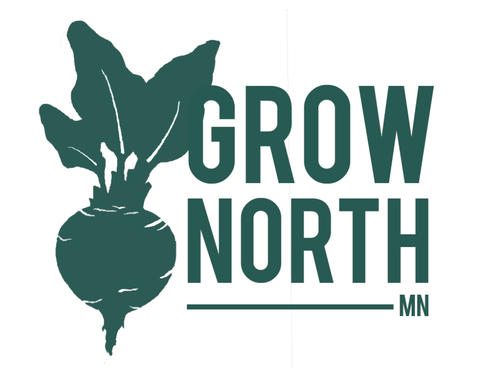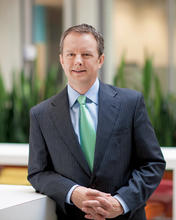
The Business of Food: Connecting with Companies and Entrepreneurs
Friday, November 4, 2016
The MN Cup, the largest entrepreneurship competition in the state, has embraced the food industry as a vital component. In 2014, it added a food/agriculture/beverage category to its roster to great success. The 2015 winner in this division was SIMPLS, co-founded by Ryan Rosenthal, ’11 BSB. SIMPLS, located in the downtown Minneapolis’ skyway, is a grab-and-go convenience store using locally sourced, organic foods. It playfully describes itself as if 7-Eleven and Whole Foods had a baby.
To further spur food entrepreneurs, MN Cup is launching a new program called Grow North. Funded by General Mills, Grow North will connect food start-ups with experts, thought leaders, advocates, resources, and one another to accelerate the development of ideas and talent in the state. The goal is to push Minnesota to becoming the leading community for entrepreneurs looking to begin a food business.
“Minnesota has all the ingredients necessary to start and grow a best-in-class food, beverage, and agricultural business,” says MN Cup Director Melissa Kjolsing. “We have incredible service providers, researchers and innovators, large company talent, ample government support, and a driven community of entrepreneurs.” She says Grow North aims to accelerate connections among these groups, break down silos, and promote the many great things happening in Minnesota to the rest of the world.
Company connections
The ties between the Carlson School and the food business community are legion. To name only a few, retired Mosaic CEO Jim Prokopanko, as well as Page, are both Executives in Residence, with Prokopanko also sitting on the Carlson School’s Board of Overseers. Mosaic Senior Vice President Rick McLellan is a Carlson Global Institute Council (CGI) member as well as both Joe Ramaker, ’98 MBA and vice president, finance, planning and analysis at Cargill and Tim Barinka, vice president of marketing at Hormel. Tanya Dowda, the director of strategic projects for Land O’Lakes, can be found on the Department of Supply Chain and Operations’ Executive Committee as well as eight other executives in the food and agriculture industries. The school’s Institute for Research and Marketing has Cargill’s Vice President of Global Marketing, Paul Hillen, on its advisory board.
Greg Page, who retired as Cargill’s CEO in September 2015 and is co-teaching a Carlson School class on corporate social responsibility this fall, shares why he chooses to stay school connected. “Maintaining contact with emerging leaders is important to me,” he says. “It’s a great way to see what the next generation of leadership is thinking. I look forward to hear what is on their minds and where their views arise from and how they came to believe what they do. I see it as continuing education for myself.”
David Clark, ’00 MBA and president of the U.S. Yogurt Operating Unit of General Mills, is another CGI Advisory Council member. He sees the kinship between the two organizations. “Carlson and General Mills are on a similar mission to build their brands around the world,” he says. “A smaller percentage of our sales is outside the U.S., so we’re building that in China and Brazil and India. CGI is doing very similar with partnerships in China and Vienna. There are just a lot of commonalities in our objectives in what we’re doing. It’s very compatible.”
A symbiotic relationship
The compatibility allows for mutual benefit. CGI offers Global Business Practicum courses for students to apply their business knowledge and hone their cross-cultural team skills on a real-world business problem. “As a part of that, CGI looks for companies that have a business challenge to give these students,” Clark says. “I always take that as an opportunity to my peers around the world—‘they could really help you if you have a challenge.’”
Last year, Clark’s own company had the challenge. General Mills was looking to launch a new product into Austria, Switzerland, and the Czech Republic—a dinner kit to make Indian food. “Our team in those countries is very small, so it was a great mutual opportunity,” Clark says. “We developed that product platform, but they didn’t have the resources to understand the marketing, to understand the opportunity. The Carlson School said it was going to this part of the world and was looking for work. It was win-win putting these two together.”
Students in the practicum broke the product down in three different markets and brought it back to the General Mills team to make recommendations around strategies, fit, and resources that would be needed. “It was something for us that the team couldn’t have done on its own,” Clark says. “It was a great opportunity to leverage talent at the Carlson School and give students real-world learning. They really shaped the business strategy and a lot of it is in the process of being implemented right now.”
The CGI Council is not the only way Clark is connected to the Carlson School. He will be teaching an upcoming marketing class and will be speaking in others. He also is chairing a committee to create a General Mills-U of M alumni association, something that the company has not had before. “I’ve agreed to chair that to increase the connections between General Mills and the Carlson School,” he says. “I’m looking forward to what that is going to bring.”

